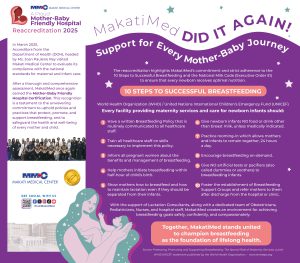
The brain is a highly complex organ. Its complexity contributes to how neurological conditions differ from others, with some affecting behavior, the senses, movement, and other motor functions. Tourette Syndrome (TS) is one such neurological condition.
A person with TS exhibits sudden tics, which may seem odd in front of others, and can affect a person’s social life and mental health. Learning about TS will enable others to understand better what those diagnosed with this disorder go through. This article will discuss Tourette Syndrome causes, symptoms, and treatment options.
What is Tourette Syndrome?
Tourette Syndrome is a neurological disorder that causes one to do sudden, repetitive movements they cannot control, or “tics,” which can either be simple or severe.
TS is most common among children. On average, they begin showing signs of TS at the age of six (6). The tics may subside as they reach adulthood; however, there are cases wherein the tics worsen as they grow older.
Although considered a neurological disorder, TS has no direct link to a person’s mental processes. Those diagnosed with it can still perform tasks and jobs that people without the condition can do.
Symptoms of Tourette Syndrome
The symptoms of Tourette Syndrome range from simple to complex and physical to vocal. Tics also tend to be unique to the individual.
-
Motor tics
These are tics that involve body movement, such as facial twitching or shrugging of the shoulders.
-
Vocal tics
Vocal tics are sudden and involuntary sounds coming from a patient’s voice. These include humming or repeating a particular word or phrase.
-
Simple Tics
Simple tics are movements that involve only a few body parts. Examples of simple motor tics include turning the head or darting the eyes, while vocal tics include barking or grunting.
-
Complex Tics
These are typically a pattern of different movements performed together in quick succession. An example of a complex motor tic would be winking, whistling, and doing a hand movement. Alternatively, a complex vocal tic may involve the repetition of words, uttered either by the patient themselves or another person. The other more bizarre complex vocal tic is the involuntary exclamation of vulgar words or phrases, also known as coprolalia.
A person’s emotional state, such as feeling excited or anxious, tends to trigger the tics. It is possible for individuals to suppress them, but only for a while. Some have cited a feeling of built-up tension when holding the tics for too long.
However, some individuals have found that the tics disappear when they are engaged and focused on specific activities, such as dancing or playing music.
Causes and Risk Factors
Given the complexity of the brain, the exact cause of TS is not yet known. Medical professionals believe that factors such as inherited genes, the person’s surroundings, and how chemicals in their brain spread might play a role in developing TS.
One’s sex also contributes to the potential causes of Tourette Syndrome, as the disorder has been found to be more common in males than females.
Complications Associated with Tourette Syndrome
These disorders or challenges usually arise from Tourette Syndrome.
-
Attention-deficit hyperactivity disorder (ADHD)
Medical researchers have linked TS with ADHD. A study found that up to 90% of children with Tourette Syndrome also exhibited ADHD-related symptoms.
-
Obsessive-compulsive disorder (OCD)
Some individuals with TS may experience OCD-like symptoms such as needing to touch or rub certain things.
-
Behavioral issues
Those with TS may experience disinhibition, involuntarily making them act inappropriately or immaturely in social situations.
-
Anxiety
A study found that around 30% of those with TS experience mood or anxiety disorders and exhibit disruptive behavior. These symptoms also appear when the patients are much younger than the general population.
-
Learning disabilities
While TS may not affect a person’s intelligence, their tics and potential attention deficits may require them to get special learning arrangements.
-
Sleep disorders
Tics can continue even in sleep, causing disrupted sleep, insomnia, or movement disorder.
-
Socialization difficulties
The lack of social acceptance of this disorder can make some individuals experience difficulties in socializing and building relationships.
-
Pain caused by tics
Certain complex tics, such as slapping one’s face or banging the head on a table, can leave individuals bruised and swollen.
Treatment Options
Although a Tourette Syndrome cure has not been found, medical researchers have made great strides in helping manage the disorder. Below are some treatments that help those diagnosed manage their TS.
-
Medications
Medications for Tourette Syndrome are meant to reduce severe or disruptive tics. These will vary depending on the individual and their doctor’s diagnosis. The most common are medicines that block or lessen dopamine, like risperidone, pimozide, fluphenazine, and haloperidol.
-
Behavioral therapy
While no behavioral therapy can treat TS completely, specific types have been developed to help those diagnosed with the disorder. Since certain tics can cause self-harm and negatively affect one’s mental health, behavioral interventions can help cope with these effects.
One such intervention would be the Comprehensive Behavioral Intervention for Tics (CBIT). CBIT aims to help individuals have better control over their tics. It involves three stages:
- Training individuals to be aware of their tics and their urges to tic
- Replacing that urge with competing behavior
- Modifying their lifestyle to reduce tics
Before undertaking any treatment, individuals should first schedule a checkup with their doctors to understand the best option for their unique case.
Spreading Awareness of Tourette Syndrome
Tourette Syndrome causes individuals to perform involuntary physical or vocal actions. Despite studies estimating that one (1) out of every 162 children has TS, there is still a long way to go in breaking the stigma of this neurological disorder.
Living with TS can be difficult. It is why—as with many other neurological diseases—seeking diagnosis as early as possible is essential. Parents should consult with a pediatrician as soon as a child displays involuntary movements or sounds.
Makati Medical Center’s world-class healthcare facilities help treat and manage neurological diseases such as Tourette Syndrome, cerebrovascular diseases, and sleep disorders, among others. Visit us today!










